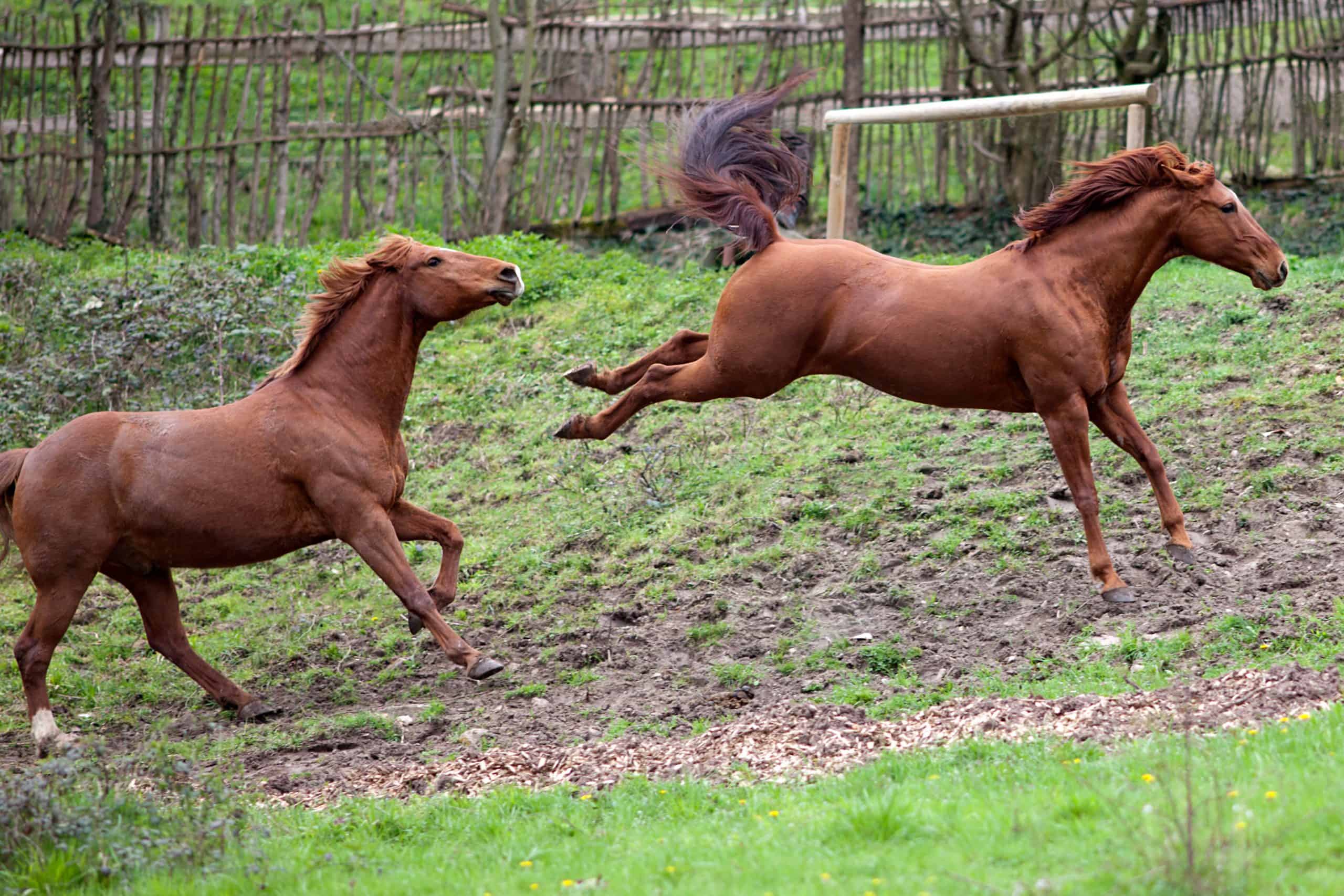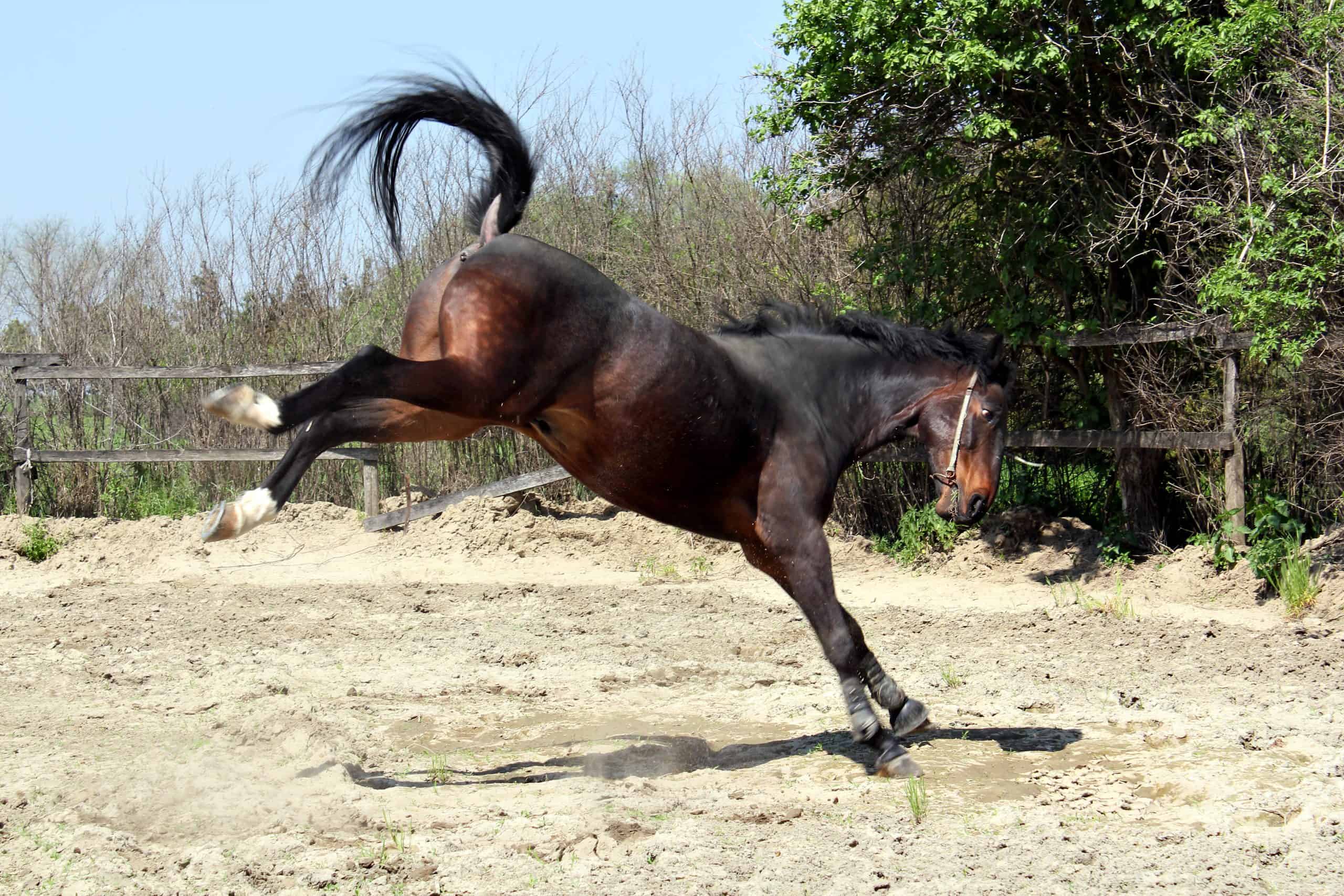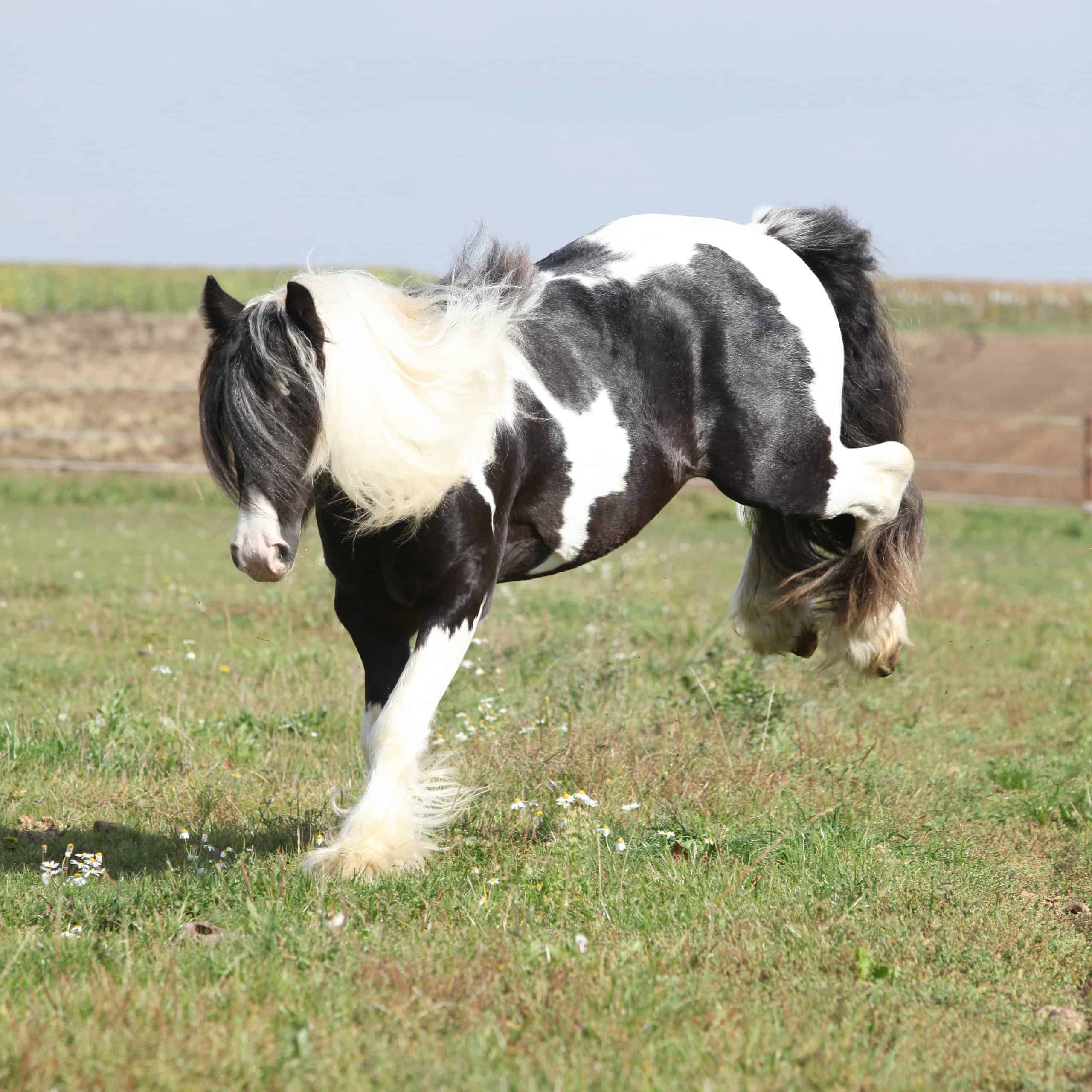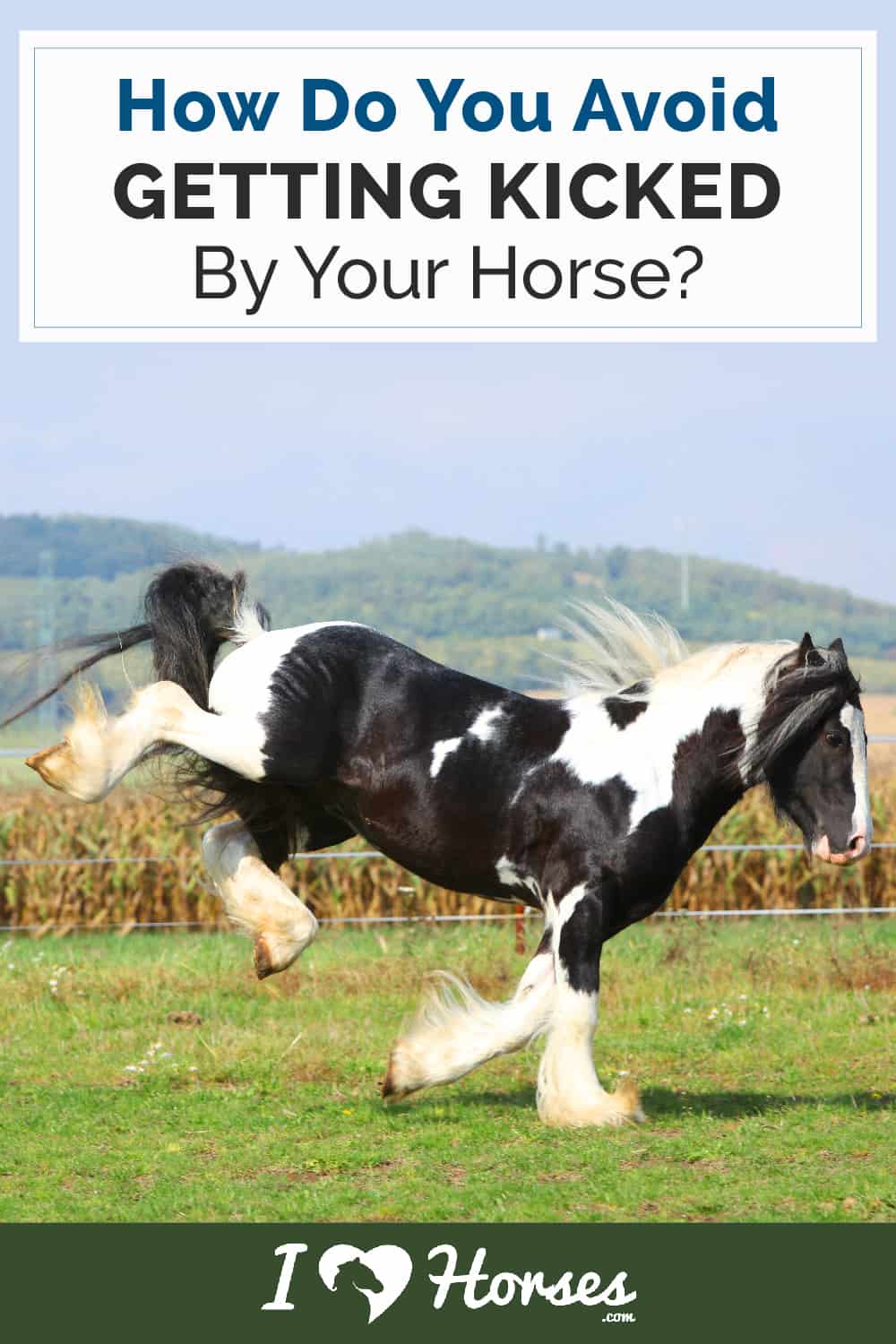Horses kick for a number of reasons, and their powerful back legs are nothing to scoff at. A well-placed kick is enough to send experienced riders to the hospital. They leave bruises and broken bones, and full-force kicks have also been fatal. Equestrians are quick to take pride in surviving a kick, but there's also a sense of accomplishment in knowing how to avoid them.
Horses kick when they're frustrated, scared, hungry, and some seem to do it simply because they feel like it. You can't always stop it from happening, but you can do your best to stay out of the way. Here are five tips to avoid being kicked.
#1 - Let them eat in peace
Horses get particularity excited at the sight of a fresh bale of hale or a scoopful of oats, and that excitement often translates into aggression. Even horses that would otherwise have no interest in intentionally kicking a person get overwhelmed by the thought of dinner. If they're fed in close proximity to other horses, you also run the risk of getting caught in the crossfire as they fight for a spot at the table.
#2 - Know your horse's body language
A horse starts kicking for a number of reasons. In many cases, it's your horse's last attempt at getting their point across. She can't speak her concerns, but that doesn't mean your horse isn't giving you warnings. Body language is the only language you and your horse share, and you need to be fluent. A horse that's about to kick often pins back her ears to show she's upset. She'll swish her tail and slowly start shifting her weight to get her back leg ready for action. If you start noticing these signs, stop what you're doing and get out of the way.
#3 - Work on desensitizing your horse
Desensitizing means getting your horse accustomed to being handled by you. They should know from experience that whatever you do, you're not going to hurt them. Kicks often stem from anxiety at having their hooves, legs, and bellies handled. You can put your horse at ease by continuously working to make her feel comfortable in your care. Simply sitting with her for 15 minutes a day while you pick up her hooves and touch her belly will help.
#4 - Stay close and keep contact
If you have no choice but to provide care for a horse that isn't comfortable with you, stay close to the animal and keep one hand on her body. This will help the horse know exactly where you are, and you won't spook her by showing up somewhere she wasn't expecting. You'll also be able to feel the tensing of her muscles beneath the fur. If you feel the horse tense, you're doing something that's making her uncomfortable and the horse could start kicking.
# 5 - Be careful around groups
Horses kick each other to show frustration, annoyance, and dominance, and their riders are often caught in the middle of their disagreements. Never walk between tied horses and stay aware of your surroundings when walking among loose horses. The force behind the kick of an 800-pound animal will annoy another 800-pound animal, but it will send a 100-200-pound person to the hospital.
Want to learn more on why horses kick and ways to teach them to stop? Check out this article on iHeartHorses.com to learn why our equine friends do this and how to correct the issue.
Horse Courses by Elaine Heney
- Listening to the Horse - The Documentary by Elaine Heney & Grey Pony Films
- Shoulder In & Out Training for better balance, bend & topline development with your horse
- Over 110+ Polework Exercises & Challenges to Download
- Dancing at Liberty & Creating Connection with Your Horse (11 lessons) - Grey Pony Films









Leave a Reply